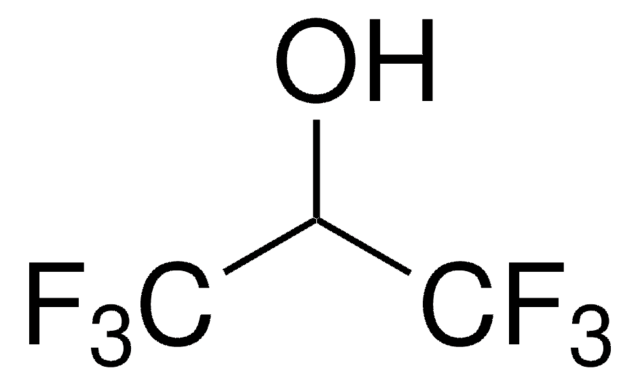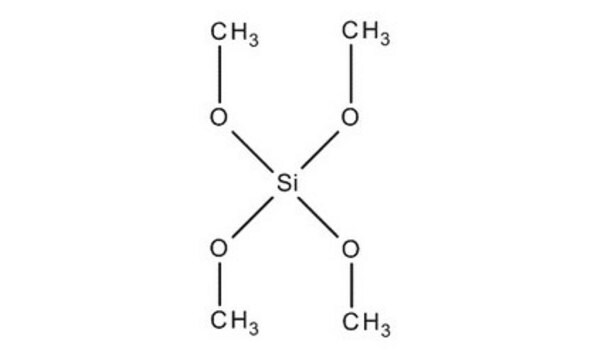679259
Tetramethyl orthosilicate
deposition grade, ≥98%, ≥99.9% trace metals basis
Synonym(s):
Tetramethoxysilane
About This Item
Recommended Products
grade
deposition grade
vapor density
5.25 (vs air)
vapor pressure
13 hPa ( 20 °C)
assay
≥98%
≥99.9% trace metals basis
form
liquid
refractive index
n20/D 1.368 (lit.)
bp
121-122 °C (lit.)
mp
−4 °C (lit.)
density
1.023 g/mL at 25 °C (lit.)
SMILES string
CO[Si](OC)(OC)OC
InChI
1S/C4H12O4Si/c1-5-9(6-2,7-3)8-4/h1-4H3
InChI key
LFQCEHFDDXELDD-UHFFFAOYSA-N
Looking for similar products? Visit Product Comparison Guide
Application
signalword
Danger
hcodes
Hazard Classifications
Acute Tox. 1 Inhalation - Eye Dam. 1 - Flam. Liq. 3 - Skin Irrit. 2
Storage Class
3 - Flammable liquids
wgk_germany
WGK 1
flash_point_f
78.8 °F - closed cup
flash_point_c
26 °C - closed cup
ppe
Eyeshields, Faceshields, Gloves, type ABEK (EN14387) respirator filter
Choose from one of the most recent versions:
Already Own This Product?
Find documentation for the products that you have recently purchased in the Document Library.
Articles
From Form to Function: Molding Porous Materials in Three Dimensions by Colloidal Crystal Templating
Deposition Grade Silanes, fully characterized by chemical analysis and nuclear magnetic resonance (NMR) with greater than 98% purity, for Sol-Gel Processes.
Reactive silicone chemistry: Focus on pure silicon production, polymerizations, and controlled stereochemistry reactions.
Mesoporous materials, such as aerogels, offer advantages for practical hydrogen storage. They have large surface areas, open porosity, small pore sizes, and the ability to coat the surface with one or more compounds.
Our team of scientists has experience in all areas of research including Life Science, Material Science, Chemical Synthesis, Chromatography, Analytical and many others.
Contact Technical Service








